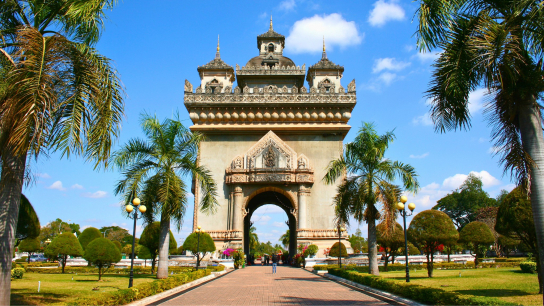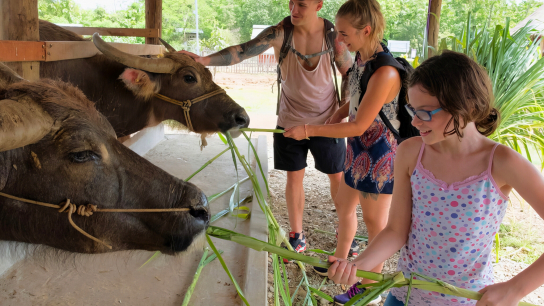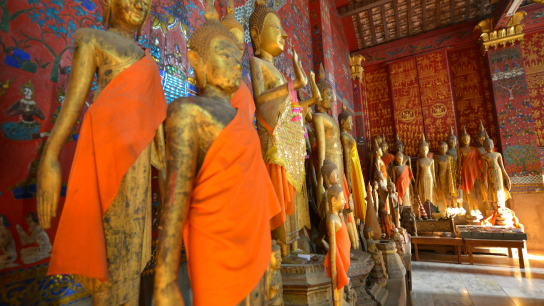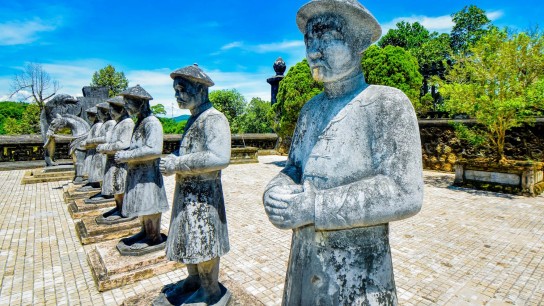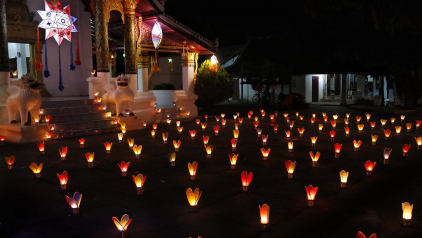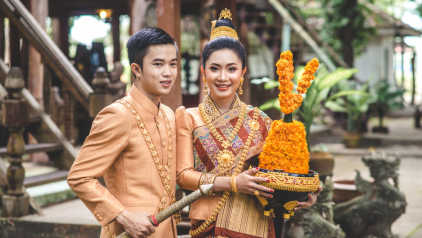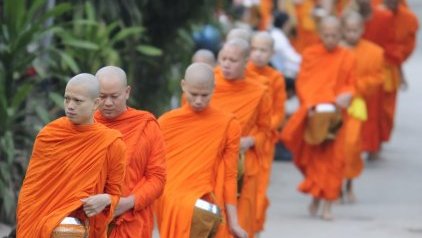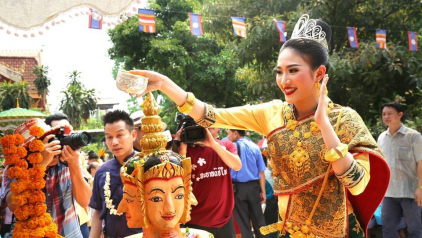Laos - A country of Buddhism
Although Laos is one of the poorest countries in the world, their Buddhist beliefs help them to find happiness through a simple life.
The most significant cultural element of Laos is its spiritual and religious influence. Buddhism was the state religion of Laos. Lao Buddhists belong to the Theravada tradition. As is the case of Buddhists in neighboring countries, Lao Buddhism is heavily influenced by and intermingled with traditional animistic and shamanistic beliefs. Often, Buddhist monasteries house shrines to the Phi spirits of the land, and often Buddhist monks are practitioners of the spirit cult.
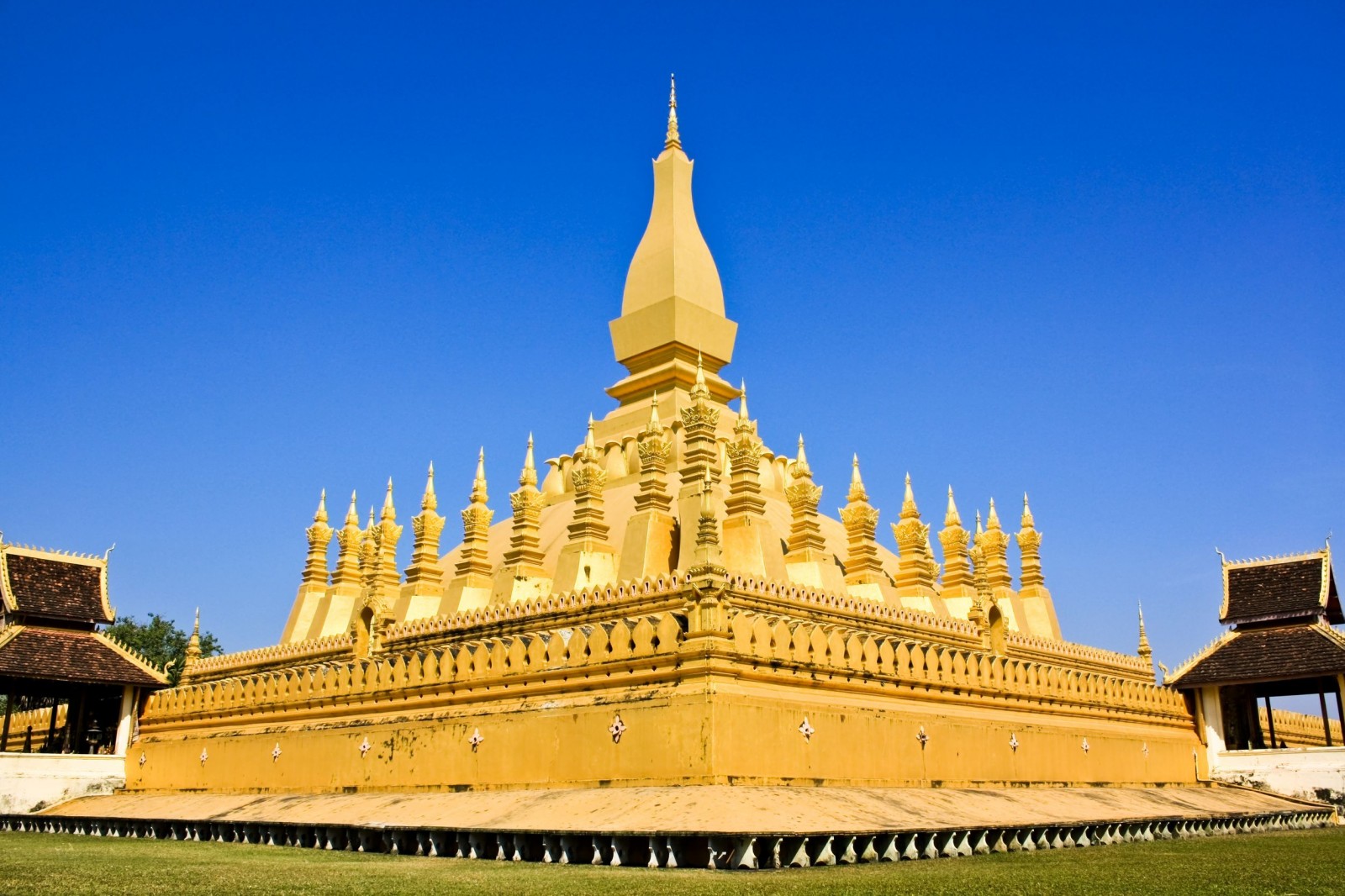
Pha That Luang - The National Symbol of Laos.
Like in other Southeast Asian countries, Buddhism in Laos brings peace and joy to the people as well as a number of festivals which are breaks in the agricultural working year. The Buddha statues are worshiped in almost every corner of the country: in the temples, pagodas, mountains, hills, caves, and even forests. In daily life, you will find numerous Buddhist monks along the streets. You know what? Their special saffron robes help adorn the Luang Prabang streets in a positive light. Tourists coming to Laos will find it interesting to snap the photos of cityscape or riverscape which dotted with some Buddhist monks. Just capture the moments you stay at Vientiane or Luang Prabang and don't forget to show your respect!
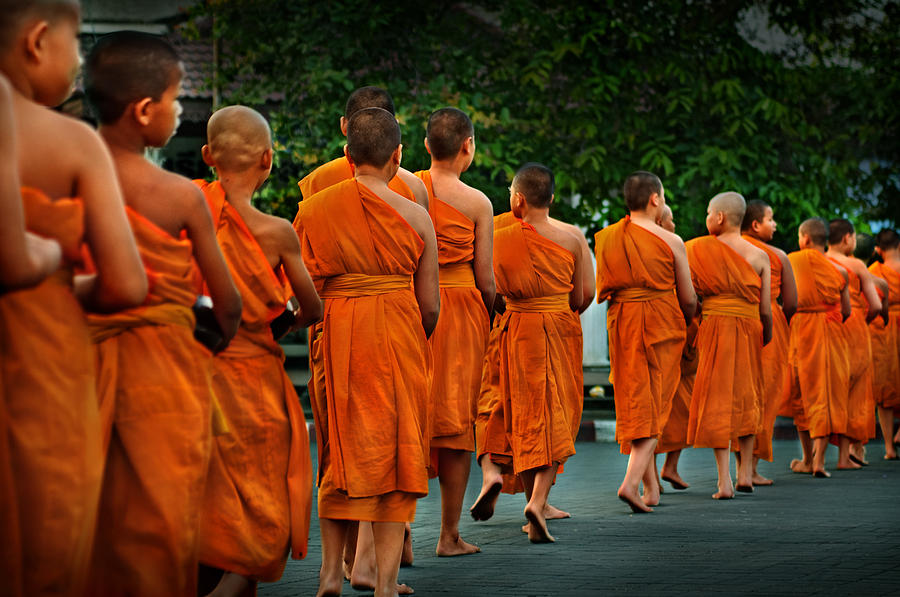
Buddhist monks line up on the streets in Luang Prabang
Referring to the goodwill taught by Buddhism, the Laotians have a strong faith in reincarnation. Therefore, some are devoted to do good things for good returns. That is the reason why Laotian are known as one of the friendliest and calm people on earth. In Laos, all makes generally spent a period of time as a monk in their youth: this period of time can be as short as one week or as long as several years, but typically 2-4 months. Being ordained as a monk brings great merit not only to the boy but to his parents. It had the advantage in that the novices were taught to read and write as well as learning about Buddhist precepts. For those who elect to remain as monks, their main concern is to develop detachment from the world as they are working to achieve enlightenment in this life; laypeople are working to accumulate merit for a better rebirth. They do not engage in labor of any kind but spend their days in study, preaching, meditation, running the monastery, doing good works, etc. They are totally dependent on the people for food, clothing, and shelter. The people, especially women, take turns preparing and giving food and robes to the monks; they often clean the monastery, wash the monks' clothes and perform other such services as acts of piety and merit.
In spite of the almost universal acceptance of Buddhism among the Lao groups, most Laotians also believe in the rich traditional spiritual life. The belief in phi (spirits) affects people’s relationship to nature, provides a cause of illness and misfortune, and shapes interpersonal relationships. Many of the temples have small spirit huts on their grounds. Many of the village monks are respected as having the ability to exorcise malevolent spirits or contact favorable ones. Phi has much in common with the spirits of the land worshipped in other Southeast Asian countries. Some are connected with the elements of earth, heaven, fire, and water; others are the malevolent spirits of those who die by accident, violence, or in childbirth. There are also spirits of animals, spirits of places, especially of dangerous places, and offerings of various kinds are made to placate them. Ceremonies generally involve a ritual specialist who oversees the offerings of chickens, rice wine, and other agricultural products. Each village has a village spirit that needs to be nourished with gifts and ceremonies. The cult of ancestors is also important and a variety of ceremonies takes place honoring them, asking their assistance for their descendants. The belief in the existence of these spirits has mingled quite well with mainstream Buddhism.
Altogether, Buddhism has long been a strong force in Lao culture and remains a major influence in everyday life. If you have not paid a visit to this country till now, start planning a tripright away for you are missing out on something really significant.
Xuyen
Image Sources: Internet.
